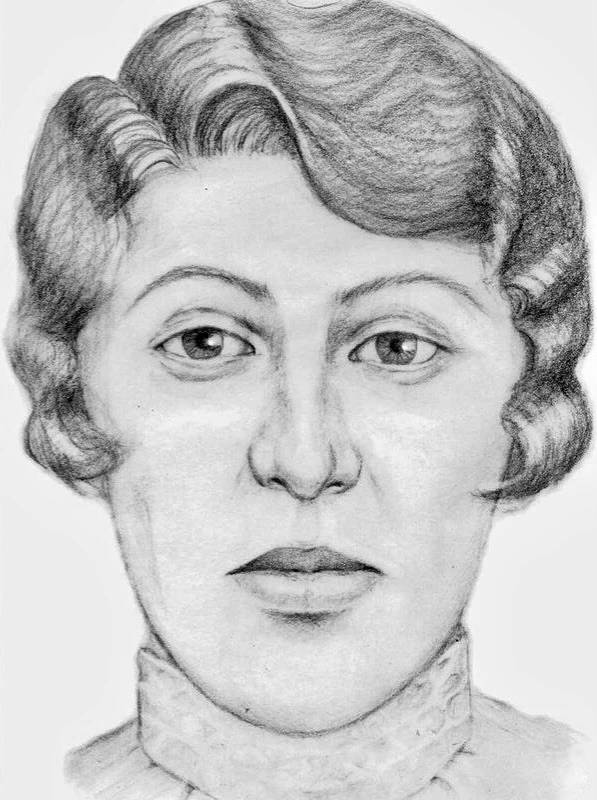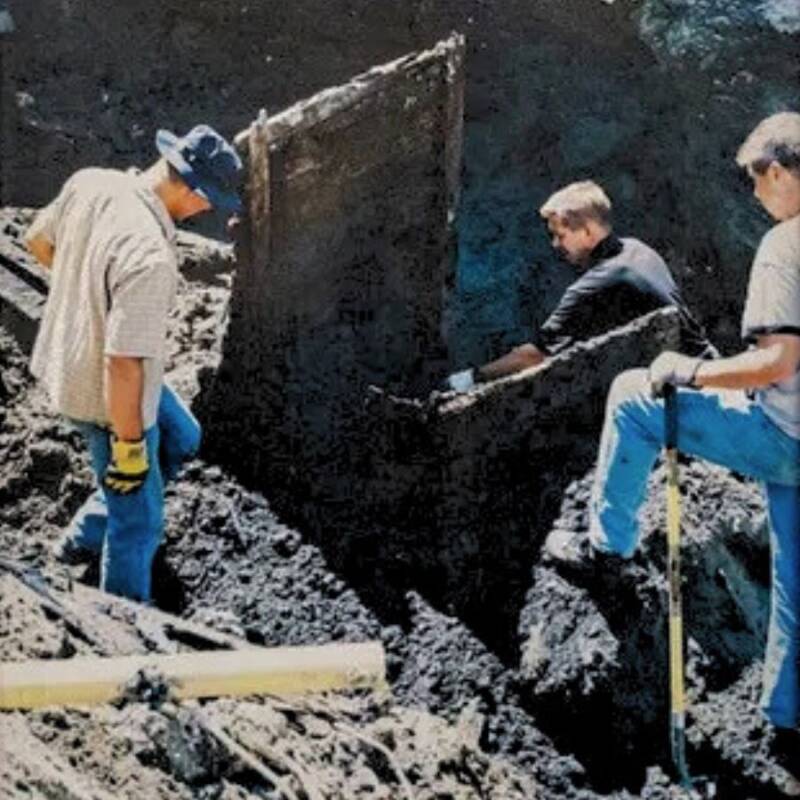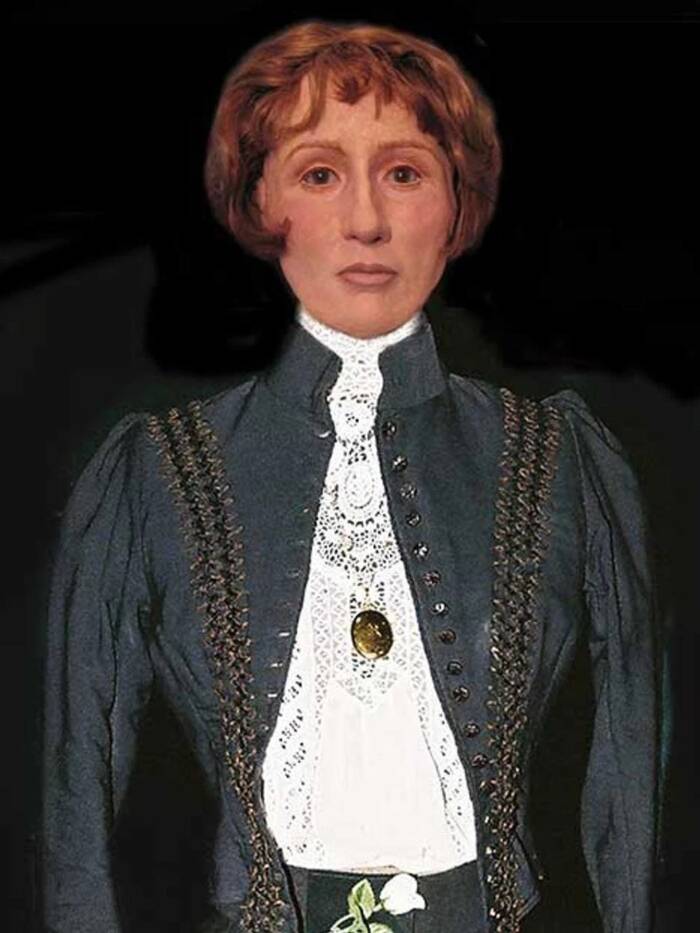Alice Spence was likely killed and dumped into the well shaft between 1916 and 1918.

Victoria Lynwood/Unidentified WikiA sketch of the “Woman in the Well,” recently identified as Alice Spence.
Nearly 20 years ago, Canadian police discovered the remains of a woman — previously known only as the “Woman in the Well” — who died more than a century ago.
Now, thanks to DNA testing and genetic genealogy, investigators have identified the remains as Alice Spence (nee Burke), who is believed to have moved to Saskatoon around 1913. Finally, after more than 100 years, her family has gained some closure.
Finding The Remains Of The ‘Woman In The Well’
On June 29, 2006, construction workers were excavating the site of a former gas station in Saskatoon’s Sutherland neighborhood. During the dig, bones were found in a burlap sack inside a wooden barrel that had been tossed down a well, according to a press release from the Saskatoon Police.
The remains were shockingly well-preserved enough for an autopsy to be performed, which determined that the woman’s death was suspicious in nature. Investigators said at the time that the discovery was a “miracle,” as the odds of recovering such an old body in such good condition are low.
“I used to say that she wanted to be found,” said Dr. Ernie Walker, a professor of anthropology and archaeology who assisted in the investigation.
Walker attributed the remains’ preservation to a mixture of water and gasoline in the ground, according to the CBC. Walker and other investigators have spent the past 19 years employing a variety of tools and historical documents to try to determine the woman’s identity.

Saskatoon Police ServiceWorkers dig out the well shaft where Alice Spence’s body was found in 2006.
“My colleagues and I used heavy equipment, did some excavation around the well and took it apart board by board,” Walker said. “Unknown to the individual that dropped it, a piece of cribbing of the well had broken loose and blocked the barrel from going all the way down to the bottom.”
From two teeth and the woman’s hair, Walker, with the help of the Toronto Police Services’ Investigative Genetic Genealogy team, was able to gather enough DNA evidence to form a rough family tree for the unidentified victim. They then reached out to suspected relatives and were able to officially identify Alice Spence.
Police also said they have a suspect in the murder, but they are not announcing any details, as that suspect would be long dead by now. Officially, they consider the case closed.
Spence’s descendants were contacted with the news as well. According to investigators, most of them were unaware of Alice Spence’s tragic fate.
Alice Spence’s Family Finally Lays Her Remains To Rest
“The whole thing was a total shock,” said Cindy Camp, Alice’s great-granddaughter. “We didn’t know anything about Alice’s circumstances. On July 16 we got a phone call from the Toronto police asking us if we could give a DNA sample.”
Investigators explained some of the family’s history.
Alice Burke was born in September 1881 in Michigan and later moved to Minnesota, where she worked as a seamstress and clerk. In 1904, she married Charles Irvine Spence, and she gave birth to their daughter, Idella, a year later.
The Spence family moved to Saskatoon in 1913. In 1916, Alice gave birth to a second daughter, who tragically died the same day.

Saskatchewan Association of Chiefs of Police/Missing Persons DatabaseAn artist’s rendering of Alice Spence.
As of the 1916 census, Alice was still alive in Saskatoon. Two years later, according to newspaper reports from the time, a fire destroyed the family’s home while they were away.
Later information from 1921 lists Charles as living with his daughter, a housekeeper, and the housekeeper’s son. Idella, Camp’s grandmother, never talked about her mother but said she was orphaned at the age of 17, after Charles died of a heart attack in May 1923. Idella died in 1995.
Based on this information, investigators believe that Alice was murdered sometime between 1916 and 1918.
“Knowing what we know now, I wish I could talk with my grandmother, even for an hour, to hear her side of the story,” Camp said. “And while this has been an emotional journey, we are so grateful to the many individuals who have worked tirelessly over the years to give the ‘Woman in the Well’ her name back.”
Alice’s remains were buried in Woodlawn Cemetery in 2009. Now that she has been identified, Camp said she and her family plan to put a headstone with Alice’s name and date of birth on the grave.
“Now that we know that we are genetic matches, it’s important for her to have her place,” Camp said.
After reading about the identity of the mysterious “Woman in the Well,” delve into the unsolved mystery of the Isdal Woman. Then, read the stories of 11 of history’s most baffling disappearances.





